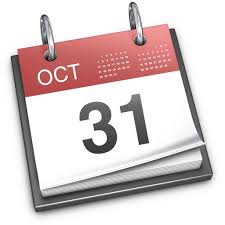|
This posted in adapted from an earlier post on this site, first composed on October 31, 2014. Tonight is Halloween. A couple of my kids will likely be going door-to-door getting candy, and we'll probably be handing out candy to neighborhood kids from our door as well. But October 31 is significant for more reasons than just this. October 31 is also "Reformation Day" - the day in 1517 when a monk named Martin Luther nailed 95 Theses to a church door in Germany and sparked what we now call the Protestant Reformation. (For a recommended introduction to Luther's 95 Theses, check out this book.) Here's what Philip Schaff, a noted church historian, says about the significance of the Reformation: “The Reformation of the sixteenth century is, next to the introduction of Christianity, the greatest event in history. It marks the end of the Middle Ages and the beginning of modern times. Starting from religion, it gave, directly or indirectly, a mighty impulse to every forward movement, and made Protestantism the chief propelling force in the history of modern civilization.” If your'e looking to brush up a bit on Reformation history, check out this post from Ligonier Ministries. This post shares a bit more about the history of the Reformation and key players in it. I encourage you to take a few minutes on this Reformation Day of 2018 and check it out. Here's the post: "The Reformation and the Men Behind It" by Stephen Lawson
Please note the usual disclaimer, that my recommendation of this article is not necessarily an endorsement of everything else on the site where this was posted. As always, read both discerningly and graciously, and with the Bible as your final authority.
0 Comments
In Luke 9:23-25, Jesus makes some bold statements about following Him. In a sense, these verses provide a “101 Class” on discipleship.
“Disciple” is a word you’ll hear in church world a lot - and rightfully so. One of Jesus’ last commands is for the church to go and “make disciples” of all nations (Matthew 28:19-20). Making disciples who make disciples should be on the short list of priorities of every church. The word disciple literally means “learner.” Don’t just think of a learner in some classroom environment, though. Think “apprentice.” Think “someone learning a skill or a lifestyle.” As followers of Jesus, we’re apprentices of Jesus. Or another way to look at it is that a disciple is someone who walks in the footsteps of someone else. When I was in college, I went on a couple of backpacking trips in Colorado - one to fulfill some P.E. credit, and one as part of a team building experience for R.A.s. They were great: Get away from civilization, sleep in tents, see some awesome sights in the Rockies, and do a whole lot of hiking. And both times I went, the guide we were with reinforced the value of paying attention to the person in front of you. To watch where they stepped and to follow that same path. To literally walk in their footsteps as much as you could. As disciples of Jesus, then, we walk in His footsteps. And if the path He went on involved suffering and self-denial (Jesus tells us this in Luke 9:22), we can’t go around that ourselves or skip that part of the trail as His followers. Which is exactly where Jesus takes His instruction to us in Luke 9:23-25: |
Tim WiebeChristian. Husband. Father. Pastor. Learner. Contributor. Reader. Categories
All
Archives
June 2024
|
© 2014-2024 | 11607 M Circle, Omaha NE, 68137 | www.thebrooksideinstitute.net



 RSS Feed
RSS Feed
